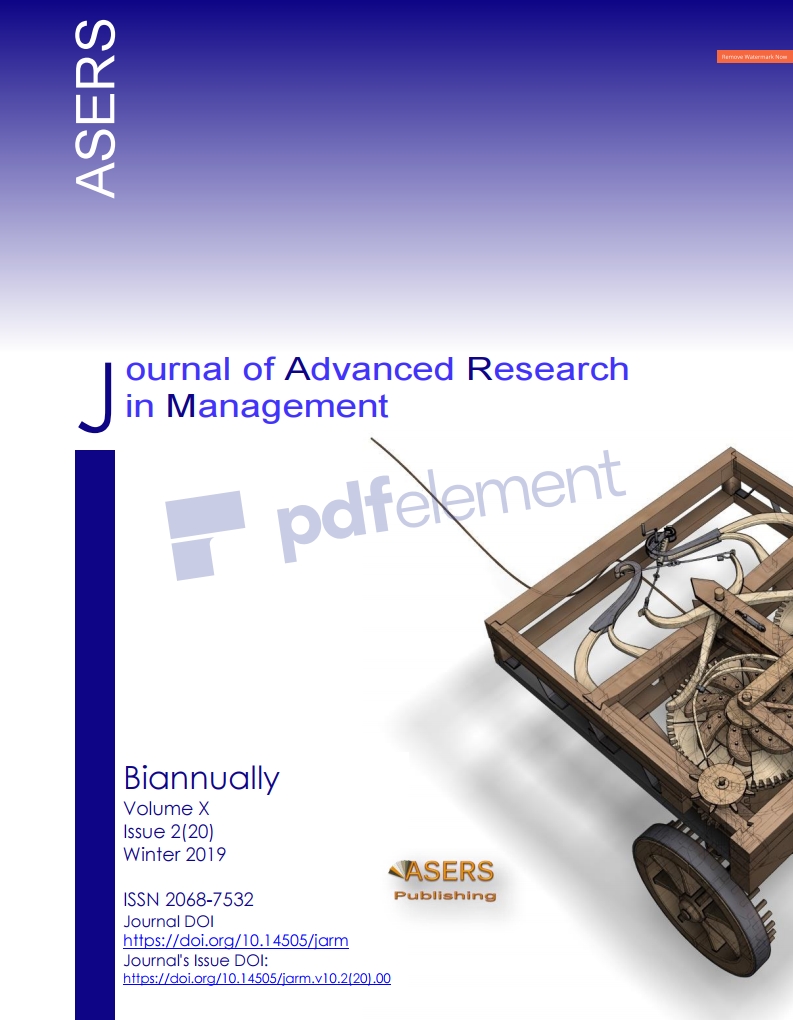PROFESSIONAL MOTIVATION AND SATISFACTION. CASE STUDY AT PREXI COM LTD.
PROFESSIONAL MOTIVATION AND SATISFACTION. CASE STUDY AT PREXI COM LTD.
Author(s): Cristina Barbu, Constantin Ștefan PoneaSubject(s): Economy, Business Economy / Management, Micro-Economics, Human Resources in Economy
Published by: ASERS Publishing
Keywords: motivation; professional satisfaction; motivation strategies; human capital;
Summary/Abstract: At all time, the company aimed to obtain profit by simply commercializing its products, without paying special attention to human resources. All the people were considered alike, and a good worker was the one who did exactly what he was entrusted to do.Abraham Maslow and Douglas Mc Gregor, after World War II, knowing what man represents at work and what motivates him, have opened the path for motivation theories: people are different; they have characteristics that can be identified and even classified into categories. It was considered a long period of time and it there was a belief in the benefits of salary stimulation, co-interested, external benefits and bonuses of all kinds, it was discovered the importance of the content of the work and the respect of the dignity of the individual.The authors consider that, in a general sense, motivation is the reason why people act and think the way they do. Professional satisfaction has several dimensions. Some include job satisfaction by itself, others include salaries, recognition, relation with managers and colleagues, the culture and philosophy of the structure. Each dimension contributes to shaping the feeling of job satisfaction, though, job by position is defined differently by people. Comparisons with expectations influence the satisfaction on the placed position.The paper analyses how the company chosen for the case study uses motivation as a factor of success. In this context, we have developed a questionnaire, in which I ask the respondents to rank the factors according to the importance they provide, the expression of attitude towards working conditions, leadership style, communication at work, job satisfaction, objectivity of professional evaluation, openness to changes. Thus, by interpreting the obtained data and by their individual analyzing, we determined the motivational structures that act at the level of each working group, these having a prognostic and corrective value, regarding the performance or the general functioning of the organization.
Journal: Journal of Advanced Research in Management (JARM)
- Issue Year: X/2019
- Issue No: 20
- Page Range: 84-97
- Page Count: 14
- Language: English
- Content File-PDF

